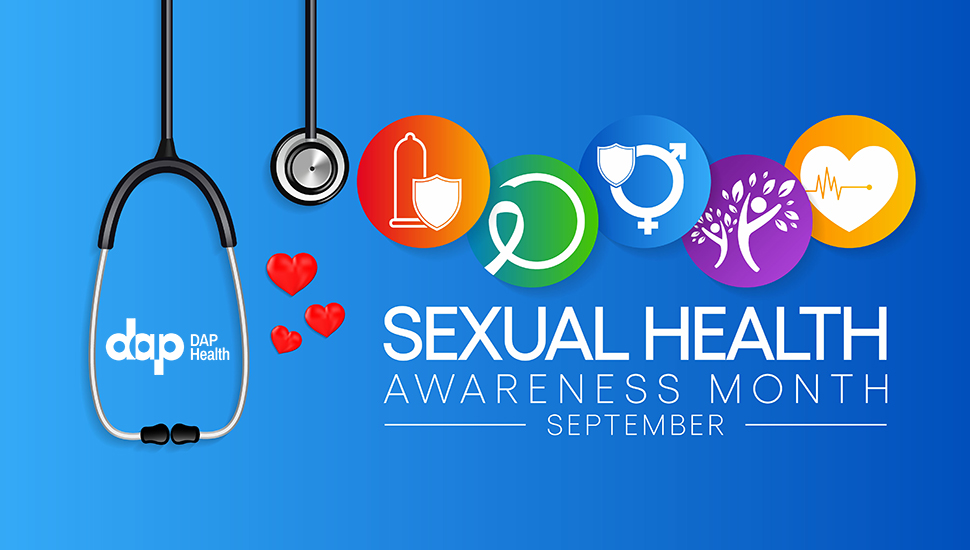It’s Time to Say “Yes” to Yeztugo
The groundbreaking new form of PrEP to prevent HIV, from Gilead Sciences, is a long-lasting injectable that only needs to be given twice a year. Now that’s a game-changer. Here’s all you need to know.
Words by Daniel Hirsch
There’s a new sheriff in PrEP Town. In June, the FDA approved a new long-lasting injectable called Yeztugo (correct pronunciation, per Gilead Sciences Chairman and CEO Daniel O’Day: yez-TOO-go) for pre-exposure prophylaxis for HIV prevention.
Those whose mission is to study and prevent HIV — like our professionals at DAP Health — are ecstatic about its arrival. Clinical trials have found Yeztugo’s effectiveness at preventing HIV even better than previous forms of PrEP.
One such excited clinician is DAP Health Director of Specialty Programs Dr. Jason Halperin. I spoke with him to understand not only why Yeztugo is such a breakthrough, but what hurdles may prevent its widespread adoption.
What makes the release of Yeztugo so significant?
Yeztugo is our second long-acting injectable PrEP. It has the longest time in between injections: once every six months. I can’t believe we’re at the point where we have a prevention method that’s 99% effective at preventing HIV infection, where a patient only needs that injection twice a year for full protection.
What’s in it and how was it developed?
It’s a new antiretroviral medication — the generic name is lenacapavir — that was recently developed for HIV treatment. We’ve used the component for HIV treatment for the last three years. It’s called a capsid inhibitor, which is a brand-new class of HIV medication.
Lenacapavir was studied by Gilead Sciences (creator of Truvada and Descovy) to determine if it could be used for HIV prevention. They did two very large studies that were looking first at cisgender women. What was so cool about that study is they allowed women who could become pregnant to stay on the medication. If you know a little of the history of PrEP studies, you might know that trials for Descovy did not include cisgender women. Gilead received a lot of criticism for that.
How did Yeztugo compare to Truvada?
In the first study, which was among cisgender women, they randomized everyone to either go on Yeztugo or oral Truvada. The oral arm had a 50% reduction, where the Yeztugo group had zero new infections — a 100% reduction. Then, in the second study, which was among cisgender and trans women, there were two cases of HIV infection in the Yeztugo arm. But in the Truvada arm, there were 10 times as many cases. So, there was a significant difference — a 99% reduction in incidence in the Yeztugo group was much better than in the Truvada one.
When they looked at the cases in the oral arm of both studies, in every single case there was not enough drug in the patient’s system. So, the assumption is there was non-adherence to the oral daily medication. Which we know is a big issue, which did not emerge as an issue among the Yeztugo group.
How is Yeztugo administered?
It’s two subcutaneous injections — in either the abdomen or the thigh — given in a clinical setting. It’s a very small needle, but it does burn a little bit. What I have found — and we’ve had over 50 patients in the last week start on Yeztugo — is that a little premedication with ice on the injection site really helps.
You take two tablets of oral Yeztugo at the time of your first injections, and then two tablets again 24 hours later. But you only need to take these oral lead-in doses the first time you receive injectable Yeztugo. Six months later, it’s only injectable Yeztugo. The incredible thing is that 48 hours after the first injections along with the oral Yeztugo, you are at a therapeutic level and protected against HIV.
Are there any notable side effects?
The most important thing to know about the injection is that it does leave a nodule. It’s about the size of a nickel. It’s not always seen, but it almost is always felt. The reason the nodule exists is that it’s actually how the medication is released. There’s a white blood cell called a macrophage that surrounds the medicine and leads to the forming of this nodule. Then the medicine gets released over six months.
Who’s eligible to take Yeztugo?
Everyone who is eligible for PrEP should be eligible. There are some medications that interact with Yeztugo, but they are very rare. So, talk to your doctor before starting. It’s a really easy transition from oral PrEP. After you get an HIV screening, a week later, you get the injection. If someone’s on Apretude, our other injectable medication, we can go immediately to Yeztugo. And I want to stress it’s for absolutely everyone. It does not interact with hormones — they’ve looked at this in terms of our trans population. So, that’s really exciting. It’s even appropriate for women who are pregnant or who are trying to become pregnant.
A Yeztugo injection is expensive, costing $14,109 per injection, or $2,352 per month versus Truvada’s $30 per month price tag. Will insurance cover Yeztugo?
So, yes and no. The amazing thing is Medi-Cal is covering it. That’s really incredible. Private insurance seems to be playing by their own rules. At this time.
Do you think more insurance companies will eventually change course?
In the old world, I would say this is 100% going be approved for more coverage soon. The data for Yeztugo is so overwhelmingly positive. But the politics of the moment is the big caveat. The Affordable Care Act guarantees coverage that is a Grade A recommendation by the United States Preventative Task Force. However, the existing USPTF Task Force, made up of extremely respected clinicians nationally, is under severe threat by the current administration. It is possible a new USPTF board is put together by Robert Kennedy Jr. that will say PrEP is no longer a Grade A recommendation. In that case, there will be no guarantees of any future coverage. These are the concerns we need to unify and raise our voices about with our elected officials.
Politics aside — a big aside — could you have imagined a drug like Yeztugo coming into existence when you started working in HIV medicine 12 years ago?
Absolutely not. That’s why it’s like an absolute miracle to be here. We have come so far. We literally have all the tools to prevent new infections.
To learn more about starting PrEP with Yeztugo at DAP Health, please click here.







